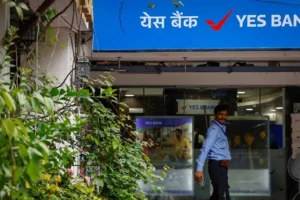
In a move that has shocked many, two Australia university ban Indian students entry from six states and one Union Territory from India. Citing an increase in fraudulent visa applications, this move is part of an escalated series of rigid international student policies in reaction to what increasingly claimed to be “non-genuine” attempts to enter the country.
Colleges Enforce Restrictions Based on Each State
Victoria’s Federation University and New South Wales’ Western Sydney University, have just announced they have informed their education agents that students from Punjab, Haryana, Gujarat, Uttarakhand, Uttar Pradesh and the Union Territory of Jammu and Kashmir are no longer eligible for educational admission.
This decision is based on reports made from Australia’s Department of Home Affairs acknowledging that one in four student visa applications from these states is presently classified as either fraudulent or non-genuine.
Increasing Visa Denial Rates: An Increasing Problem
A letter sent by Federation University dated May 19 noted:
“We thought this would have been a temporary issue, but it is apparent there is a trend.”
The university noted a huge increase in the number of visa denials associated with applications originating from certain locations in India, leading them to take precautionary measures. The letter was sent right before Indian Prime Minister, Narendra Modi’s three-day trip to Australia where he was attending a major event for the diaspora in Sydney.
The Response from Western Sydney University
In comparison, Western Sydney University highlighted the challenge of student drop out rates. In a letter sent to agents on May 8, the university informed agents that,
“The areas identified in India, with the highest attrition risk were Punjab, Haryana and Gujarat.”
Due to substantial dropout rates of Indian students who had commenced study in 2022, the university announced that they would immediately cease recruitment from these areas.
Wider trend across Australian universities
These changes are not happening in isolation. The Sydney Morning Herald reported that other big universities in Australia, such as Victoria University, Edith Cowan University, University of Wollongong, Torrens University, and officials affiliated with Southern Cross University, are looking at new scrutiny over Indian student applications.
Emails reviewed from these universities show that they now have enhanced screening processes, including for students suspected of applying for a study permit in Australia while planning to work.
Prior restrictions already in place
In fact, the momentum began earlier this year. In February, Edith Cowan University in Perth banned applications from Punjab and Haryana. Then in March, Victoria University restricted applications from eight Indian states, including Uttar Pradesh, Rajasthan, and Gujarat.
These moves occur alongside renewed news about Australia’s desire to uphold the integrity of its international education system, which has attracted criticism for students abusing their study visas to bypass migration rules.
Effect on Indian students and relations
The restrictions are likely to impact tens of thousands of prospective students from India, a country that regularly provides Australia with one of the largest numbers of international students.
This decision may also affect the collaborative educational links between India and Australia, especially when both countries are emphasizing enhancing their economic and diplomatic ties.
While universities have stated that these policies are temporary and applicable to certain geographical areas, there are concerns regarding possible discrimination and curtailed access to legitimate international education and opportunities for legitimate students.
Conclusion
Recent news updates on international education suggests ongoing commitment to tackling visa fraud, resulting in a shift towards complete transparency and compliance by Indian students and education agents. Universities will undoubtedly continue to review these policies as immigration and education issues change over time.
As international education becomes more connected to national security and immigration policy, this will also have implications for other countries and may foreshadow more restrictive international educational frameworks around the world.






